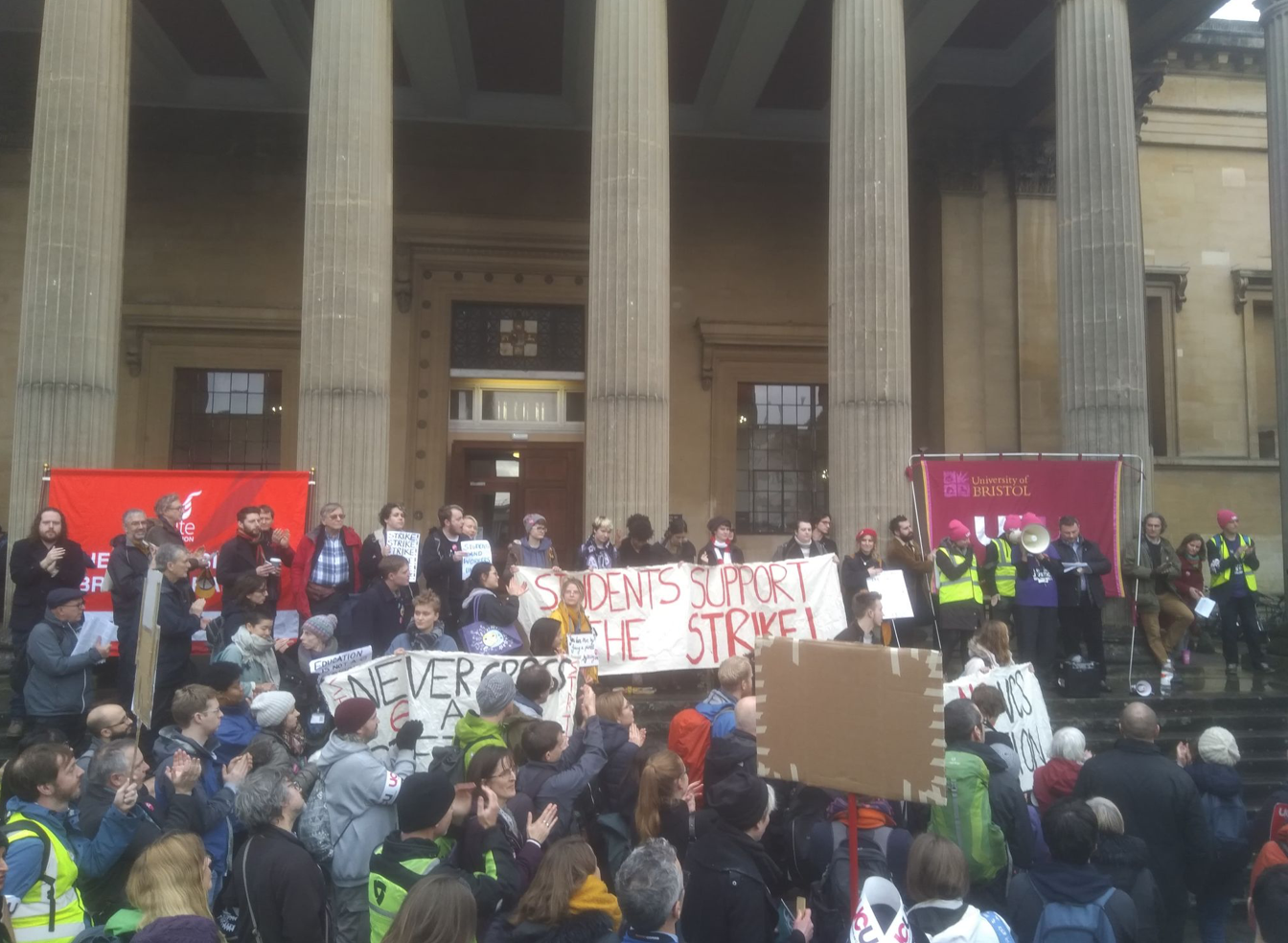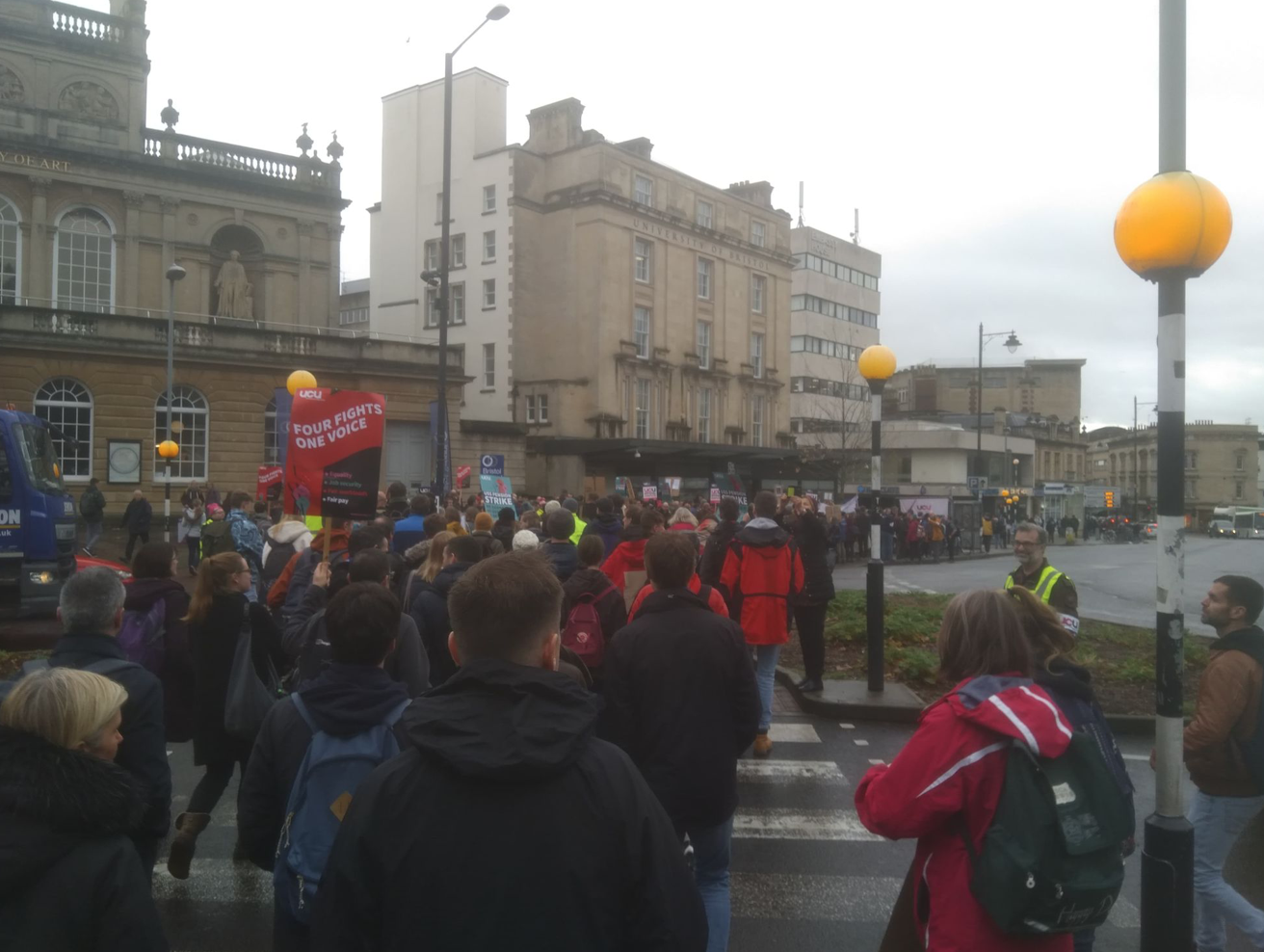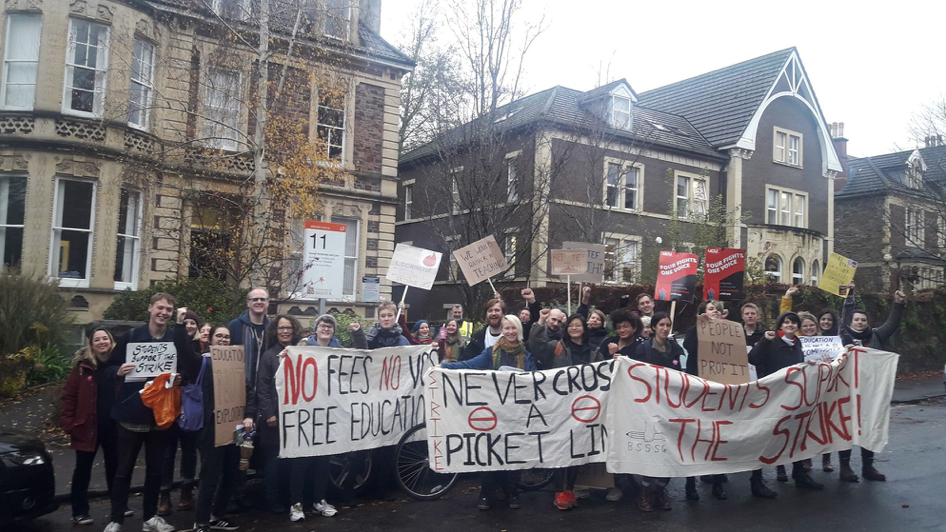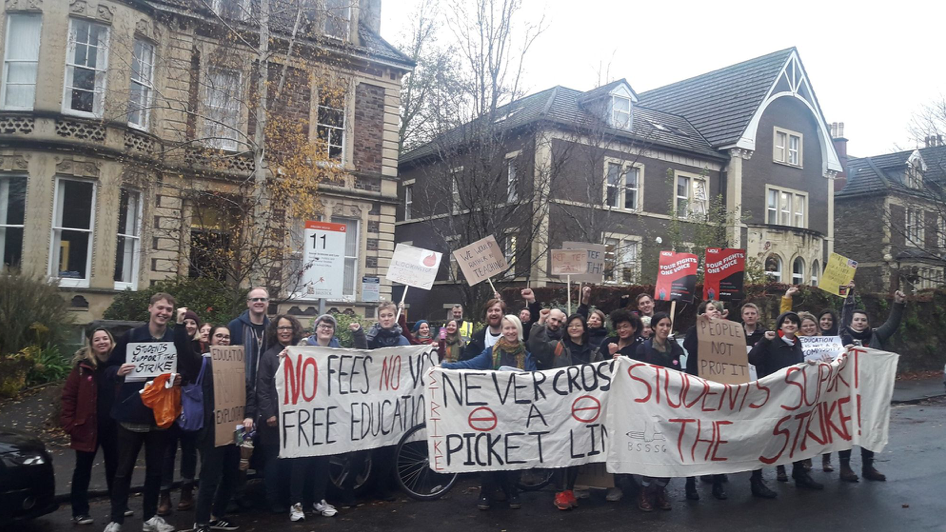By, Fiorenza Dell'Anna, First Year, English and Spanish
And so, fellow students, the roaring twenties throw their next punch. Little did we know that ‘roaring’ would be substituted with whining and picketing. Following on from the November/December strike, the UCU has declared that once again that students are going to be punished by their lecturers, who will be withholding education from them between 20 February and 13 March.
The strikes begin on the 20th February #UCUStrike @Bristol_UCUhttps://t.co/9tWepWKZ4n
— Epigram (@EpigramPaper) February 12, 2020
For those amongst you who were beginning to worry about the status of your student loans, now that you are being deprived of approximately a month of tuition (14 days of the upcoming strike and the 8 days of the last), fret not. Thankfully, although you are being denied services for which you are paying, the University will still be taking your money. Refusals to cover for absent colleagues and refusals to reschedule lectures lost due to strikes are just two of the many things that we have to look forward to this term.
To the (albeit slightly cynical) observer, it would appear to be more of an imposed sabbatical than a strike.
None of this will come as a shock to any student, however, due to the frequency with which strikes have been taking place in recent years. Some would perhaps say that this is a testament to their effectiveness… With a further threat from the UCU to continue striking in the summer term if universities don’t yield to their demands, students wait once again to be shaken down for pennies, for a service they are not being provided with.

But what is the underlying whim that is causing the onslaught of strikes that we students are subsidising? The ongoing squabble over pensions and pay. Purporting that the Universities and Colleges Employers Association (UCEA) ‘cherry picked’ information from 2013, the UCU accuses them of diluting the issue of the decrease in staff pay. While this is an unfortunate predicament by anyone’s standards and one that does merit being challenged, this should be done neither on the student’s time, nor out of the student’s pocket.
Despite the supposedly honourable notion of these strikes, there is the inescapable aura of hypocrisy that lingers in the air, high above all the talk of striking and the pride of partaking in it. As Epigram unveiled at the start of the academic year, lecturers at the university of Bristol are amongst the 10 highest paid in the country. That is to say, that they are hardly in a position to Oliver-Twist their way to a picket line and demand ‘more’, when lecturers at other universities don’t earn as much as them. Whilst acknowledging that union members (irrespective of the university at which they work) will be striking, it is hardly a promotion of equality if those who already have more, demand even more.

Amongst the many injustices of these strikes, is the sense of profound uncertainty they create. Students frequently find themselves torn when it comes to the picket lines. On the one hand, we are told to cross the picket lines ‘without fear’ to get to lessons, whereas on the the other, we are told we should not cross them ‘out of respect’. The University clarifies to some degree that ‘if you choose not to cross, you will need to take personal responsibility for the teaching and learning that you will be missing’. However, most students need not worry about either of these points, as there are scarcely any picket lines to be crossed when one traverses campus during the strike.

While the first strike was somewhat aggravating to me and many others who are accumulating a significant debt to attend this university, it was also a source of great curiosity. That is to say that I was eager to see the infamous picket lines. However, I found myself desperately searching for the picketers like a child inconclusively searches for the pot of gold at the end of a rainbow. For all the talk of picket lines, I saw surprisingly few during the last strike. Of the few I saw, the majority were finished by lunch and were comprised of a few seemingly depleted professors who looked deluded by the betrayal of their colleagues (many of whom hadn’t bothered to turn up).
Yet, the levels of participation bring to mind a greater question: what are these strikes actually being used for? Having spoken to lecturers who have said they will be using time during the strike to edit their upcoming books and substitute professors who threatened to strike but didn’t, professing that the only reason they tuned up was that they didn’t know whether their maternity leave payments would be affected, one cannot help but question the integrity of these absences.
University of Bristol Law School UCU in a festive mood on the last day of picketing outside the Wills Building - thanks to the sunshine and our wonderful conductor @DrJaneMRooney pic.twitter.com/icuT0gYDfy
— tonia novitz (@TNovitz) December 4, 2019
To the (albeit slightly cynical) observer, it would appear to be more of an imposed sabbatical than a strike. Particularly as it cannot go unnoticed that the union has provided something of a sweet deal: if given the choice between “picketing” until lunchtime and working standard working hours for three weeks, I certainly know which I would choose…
On strike for fair pensions outside Wills Memorial Building in Bristol. Lots of cars honking in support! @Bristol_UCU #strikeforuss #USSstrike @wills_memorial pic.twitter.com/1SkqeeIzP8
— Heidy Mader (@heidymader) February 22, 2018
The inconveniences that these strikes cause are obvious. I don’t believe a single student has managed to avoid that smirking professor who derisively explains to them the objective of this sordid scheme: to inconvenience the student to the point that they complain to the Chancellor and/or Vice Chancellor about their professors’ salaries and pensions. If true, this explanation should function as every student’s incentive to not do so. It is high time the professors stopped toying with their students’ educations in order to get them to fight their battles for them.
Are your studies being badly effected by strikes?









